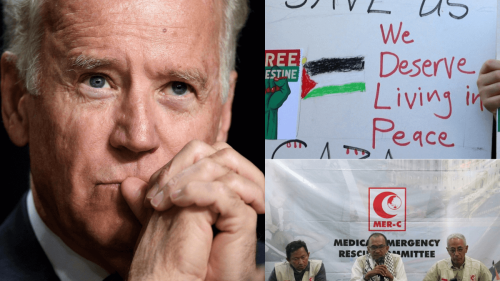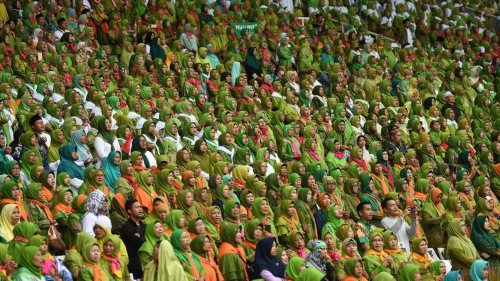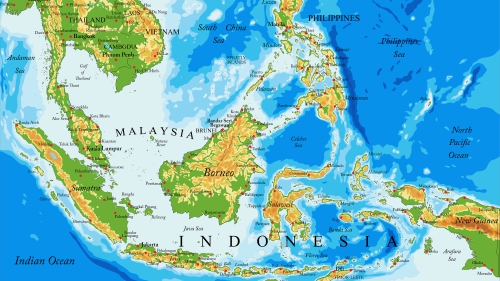Indonesia's Wahid: Struggling Forward
When Abdurrahman Wahid became Indonesia's President in October 1999, Muslims were encouraged. They took heart that, as a popular Muslim figure, Wahid would have the wisdom and leadership to bring stability and reform to Indonesia. After having seen him in action, however, Muslims now have reason to wonder how long it will take for that wisdom and leadership to impact Wahid's actions.
Consider the following statements made by Wahid over the past few weeks.
In somewhat of a verbal "preemptive strike," Wahid said Jan 14: "The Koran has never mentioned the need to form an Islamic state ... the forming of such state may be the desire of Muslims ... but it was never taught in the Koran and in the teachings of The Prophet." Wahid made these comments in response to People's Consultative Assembly chairman Amien Rais' suggestion that he might move towards a coalition between his National Mandate Party and various Muslim political parties. Did Wahid need to make such a clarification? It does seem somewhat out of place considering that an Islamic state is probably not the next realistic step in Indonesia.
On January 10, Wahid verified the establishment of economic ties between Indonesia and Israel. Said Wahid: "We want to balance our external relations and we want to take advantage of the Jewish lobby in international financial institutions to attract investments." There is of course no Islamic injunction that would prohibit Wahid from pursuing business with Israel. However considering the delicate state of the negotiations between Israel and the Palestinians, Muslims might have expected Wahid to use Indonesia's economic favors as incentive to move Israel in a direction of equity with the Palestinians. He instead chose to show Indonesia's hand early and Indonesians stood in protest of this new relationship with Israel.
And with reference to the troubled Indonesian province of Aceh, Wahid said Dec 10 that his government would use "repressive forces if we are challenged." Aceh, an economically vital region because of its petroleum and mineral resources, has spent the better part of 20 years calling for independence from Indonesia. More specifically, there is a popular desire in Aceh to establish an Islamic government there. As a popular Muslim leader himself, Muslims had hoped that Wahid might be more capable of finding a resolution to the Aceh problem. His rhetoric does not indicate that he is moving in that direction.
There are other examples of Wahid's stances on various issues that are cause for some concern. For instance, consider the recent clashes in Maluku, in which Christians massacred several hundred Muslims. Wahid chose to direct his cautionary words on the situation towards Muslims, warning them to not travel to the province to partake in violence.
Taken individually, Wahid's comments on these issues might seem indicative of a president taking predictable, unimaginative, consistent steps towards solidifying the first 100 days of his term. But collectively, Wahid's statements reveal a president struggling to keep his country from fragmenting. Unfortunately, the well-worn steps of condemning Muslim political aspirations and cozying to the West don't seem to agree to many Indonesians.
Indonesia is truly at a crossroads. With East Timor independent, violence and separatism threatening other provinces, economic prosperity on the decline and military allegiance in question, Wahid indeed has his hands full. And if he wants to survive well beyond his first 100 days, he will need to use his popular Muslim appeal and large dose of more creative problem solving to hold his nation together.
Ali Asadullah is the Editor of iviews.com

















